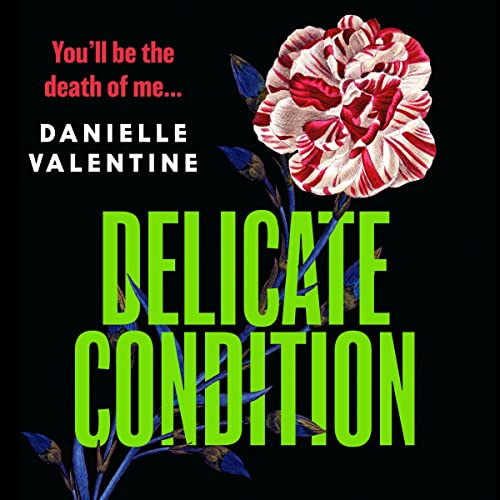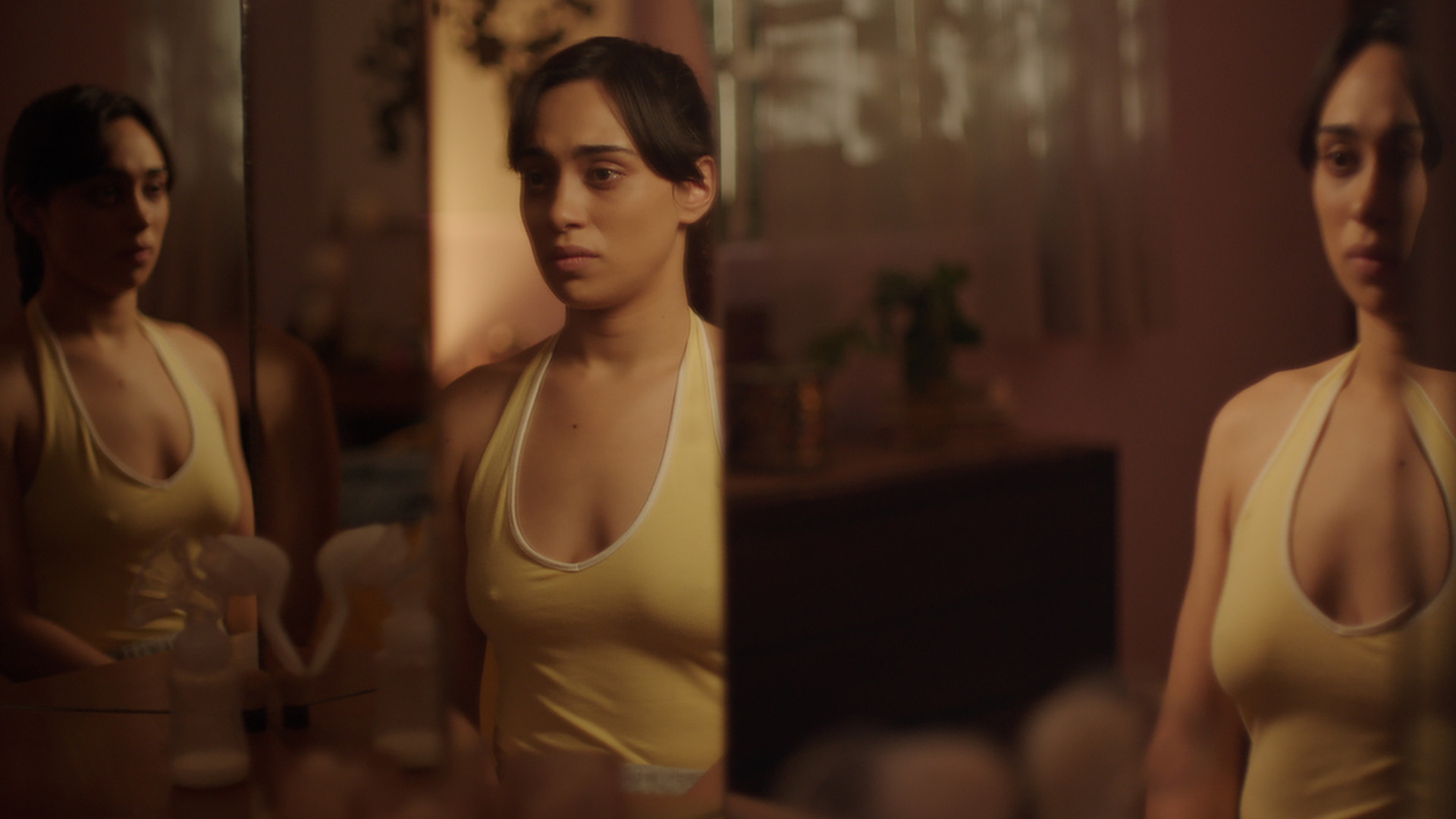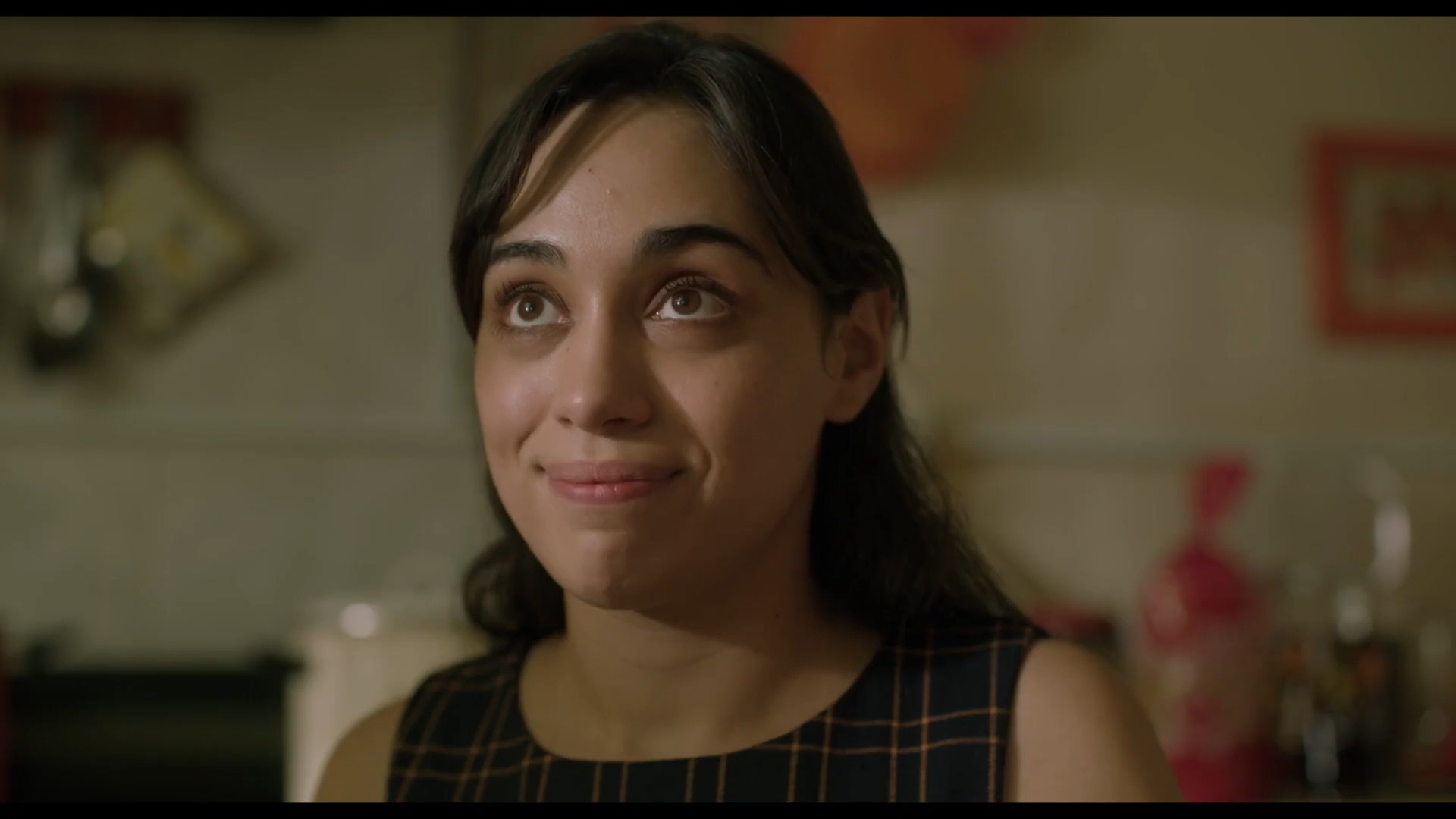‘Huesera: The Bone Woman’, ‘Delicate Condition’, And Finding Community In Motherhood [Abibliophobia]

Welcome to Abibliophobia, the monthly column where Katelyn Nelson digs into the connections and influences buried deep within the world of the written word and its far-reaching tendrils across media. Focused broadly on horror and the ways it sneaks among the pages, each month will explore a new book or series and its impact on our culture, through the lens of history, the relationship between film and literature, and what varying adaptations have to say about how we understand and recreate stories. So, curl up by the fire and crack those dusty covers open. We have a lot of exploring to do.
I have been away from this column for some time, battling to find motivation and joy amidst the burning down of every safehold for personal agency. But even in my absence I sat thinking and found myself consuming literature with an incredibly stark—and increasingly prescient—throughline. The idea and practice of who has control over women’s bodies, the perception of women’s bodies, and the ways in which our worth is tied almost inextricably within that power. Fighting to keep it for ourselves is one of the longest-held battles on as many fronts as it’s possible to imagine.
Even if we did start out with control, that time was swiftly wiped away from public memory as soon as product and occupational advertisement sunk its dirty claws into us. We did not know shame on such a mass and targeted scale until we were told to feel it. No matter who was doing the telling.
Also Read: ‘The Mummy’ 25 Years Later: A Fan’s Love Letter
Originally, I had planned to tackle Danielle Valentine’s Delicate Condition on its own, in relation to its adaptation in the hands of the continuing American Horror Story anthology series. It is, after all, an adaptation of a woman’s work through the lens and hands of men. There are several strange and notable changes that frankly do not make much sense. So far they seem focused on enforcing the male power structures and taking away a not insignificant amount of one of the story’s strongest emotional cores.
The main character, Anna Victoria Alcott, must fight against these powers to live the life she wants. Something about it did not feel like a natural comparison to make a strong enough analytical piece, as many of the changes do not do much of anything to impact the work itself. Ultimately, it’s still a story in which a woman in her thirties who is desperate to have a baby and a career at the same time is gaslit into believing there is something vitally, monstrously wrong with her. Then, she discovers and accepts a community of women who want nothing more for her than the healthy achievement of her goals.

Also Read: How to Live in a Dying World: Why We Love ‘Frankenstein’ So Much
For centuries, women have grown up in a world that tries to mold them into something specific. Something wholly unoriginal in favor of being palatable. We are hushed as we begin to form our own opinions. Before words can fall from our lips, they are snuffed out by warnings of danger and impertinence. There are far more things, it feels, that women are not allowed to say or do. As time passes, and the patriarchal chokehold tightens, our greatest acts of rebellion become at once the most dangerous and most vital things we can do to survive. To stake our claim.
I have watched society continue to fray at the edges to the point of no longer making sense. What was once our most prized and praised asset—birthing children into the world and raising families—is more at risk than ever, all in the name of self-satisfaction on the part of people who should, frankly, have no say in the matter at all. Even while they speak from one side about family values, the other side—the truer one—yells above it about dominance, control, and everything that keeps the power structures in place even as they eat themselves alive. When someone rips the socially accepted mask off and shows their true nature to you behind closed doors, believe them. There is never a more honest moment.
Also Read: The 10 Best Horror Procedurals To Watch If You Love ‘Law & Order’
And, so, I kept reading and watching, seeking links that would be strong enough to make a worthwhile piece. And then I found Huesera: The Bone Woman as an alternate perspective on exactly the kind of community Anna Victoria resists and eventually accepts.
Huesera posits an inverted, but similar, situation to Anna Victoria’s. Where Anna Victoria knows exactly what she wants, Valeria (Natalia Solián) is increasingly unsure. Initially happy with the news of pregnancy, she becomes afraid, fearing herself cursed as she hallucinates and experiences horrific injuries with increasing frequency. In an effort to save herself and protect the health of her baby, she seeks out some brujerias who might be able to break the curse before it is too late. Meanwhile, she reckons with the impulse to connect to anything familiar, even if it risks her relationships with everyone close to her. It is a harrowing debut from director Michelle Garza Cervera, and deals heavily in the perils of pregnancy, mental health, and social pressure, and serves as an interesting photonegative in conversation with Delicate Condition.
Also Read: One of the Scariest Movies Ever Made is Even Scarier in IMAX
Both works deal heavily with the terror of body horror that is the stifled core of pregnancy and childbirth. Your body no longer being your own, constantly shifting and changing in ways that could be—and often are—markedly traumatic, is at the center of both stories. And both have outside forces that would rather cast a shining light over the nightmarish effects than accept that the women experiencing them are terrified nearly beyond articulation. Almost no one listens to their pleas that something is very, very wrong. Both also bring to startling life just how little control it can feel like you have over your mental health and limits under such stifling conditions. How long can you go hearing people call you crazy for bringing attention to yourself and your experiences before you start to believe them?
Part of what makes the mirror images of Delicate Condition and Huesera work so intimately together is that, while the women are from markedly different backgrounds, the pressures and horrors they face are the same. Valeria, a former punk turned polished housewife who loves to build things by hand, has palpably shut off pieces of her identity that, we are led to believe, at one time made her feel whole.
Also Read: If You Love the ‘Evil Dead’ Franchise, Thank Stephen King
Yet at her core, she’s still an aimless teenager. She’s unsure of what will truly make her happy, reckoning with giving in to ideals that were pushed upon her. She believed she needed to go off to college, fall in love with a man, and have a baby, so she did. In the wake of that choice, she left behind an entire alternative path: a relationship with her best friend Octavia (Mayra Batalla), a connection to her creative punk roots fighting for things she believes in, and freedom it doesn’t seem she believes she has in her current life.
Her family is vocal about their belief that she is not cut out for children, even as they celebrate her pregnancy. She hears from all sides small nods to the idea of queerness as something that should be secret, and louder statements that she has never expressed meaningful connection to her nieces and nephews. So what kind of mother could she be expected to be?

When she is told that her construction of the baby’s crib might be harmful to her health and the health of her child, she refuses, for some time, to give it up. It seems to be the one thing in the entire film that is still entirely her own. Yet, she is still pressured into replacing it with something of lesser quality from a shop that her mother-in-law gushes over. Even when she grasps to this piece of her identity, she is forced to shove it away and acquiesce to the desires of someone who has very little to do with her current experience.
Also Read: Night Shifts: How ‘Five Nights at Freddy’s’ Started a Terrifying Gaming Trend
Huesera is peppered with small moments like this that build up to a larger mental and emotional sacrifice that compounds dangerously with the physical trials she is already facing. What sets her apart from Delicate Condition’s Anna Victoria is that she seeks help from—admittedly risky—unconventional yet still culturally traditional resources. The same resources—or at least a version of the same—that Anna Victoria fears for much of the novel.
Delicate Condition’s Anna Victoria Alcott is an actress with varying degrees of success, depending on who you ask. She had a wildly popular breakout role in a sitcom as a teenager, and little else of note, until a role set her up for talks of an Oscar nomination. She has worked her ass off to get to this point and is proud of the work she has done. However, the specter of being in her thirties in the public eye haunts her every waking move thanks to unfettered access to the Internet and society’s flawed understanding of when your occupational life ends in certain jobs.
She has also, for several years, been trying to get pregnant via IVF. It seems to have finally succeeded—right when it’s time to begin her Oscars promotional campaign. Under the combined pressure of doing absolutely everything right to maintain a healthy pregnancy and to promote her movie as much as possible so that Oscar buzz will continue to drone until the night of the award, Anna Victoria is faced with a crisis. There are multiple moments throughout the book where she wonders if she will have to give up her career to have this baby. She often has internal debates over which thing she wants most, even as she fights for the ability to have both.
Also Read: In Kiyoshi Kursosawa’s ‘Cure’, Stress Relief Means Murder
The novel is separated into sections aligning with hallmark weeks of fetal development during pregnancy. As it progresses, both Anna Victoria and the reader are thrown into ever more terrifying situations. Anna Victoria begins the novel believing she is being stalked thanks to an unsavory encounter in her bed in the middle of the night. Soon, she runs off with her husband Dex to a safe house of one of her husband’s friends, giving almost no one her real location. They hire a bodyguard to keep watch over her and the house. But no matter how much she expresses her anxieties to Dex about someone trying to sabotage her pregnancy, he chalks it up to nerves about the process and—perhaps most frustrating—lays everything at the altar of her own forgetfulness.
Then, a very important medication to ensure the IVF process’s success is left out overnight. Dex quickly blows up at her rather than hearing her out about how it got there. When she misses appointments and accuses someone of logging into and messing with her calendar, he considers her to just be forgetting. No matter that this is something she has wanted for years, that they’ve tried multiple times over the course of their relationship and this is the closest they have ever come to success. Even if she has proof, she must be losing her mind under the stress and hormones of pregnancy. Who would possibly be out to get her, a famous actress who has spent years in the public eye and already had one stalker?
Also Read: ‘The Woman In Black’ and the Weapon of Existence [Fatal Femmes]
Interwoven throughout the story are episodes from the perspectives of women throughout history who have had similarly traumatic experiences with pregnancy. All were desperate for a solution and, eventually, found one at the hands of a coven who offered to help in exchange for the child. What at first—and for much of the novel—seems an insidious trade eventually reveals itself to be something much closer to a communal experience. We will help you through the pain and physical complications of pregnancy, and in exchange, your daughter will continue the legacy with us of finding women in need and helping them. An ouroboros of recruitment to a cause that equates, ultimately, to a series of historical midwifery for women in the most desperate conditions.
In order to arrive at a point where she sees and accepts the coven for what it is truly trying to do, however, Anna Victoria first has to deconstruct walls of belief that have been forced upon her by society and history and the patriarchal world she makes her living in. This is a world bent on making her believe that these women are a threat when, in reality, the greatest threat she faces comes from those around her like her husband and publicist—and even her doctor—all of whom are better served when she is in a state of believing them over herself and her body.
Also Read: Vampire Ballerinas Soar in ‘Livid’ [Retrospective]
What makes the conversation between Delicate Condition and Huesera so unique, to me, is the distinct tonal differences in how each story ends. By the end of Delicate Condition, Anna Victoria has lost a great deal, but she has gained more. Her best friend died sacrificing herself so that Anna Victoria’s baby could be born, and Anna Victoria is no longer under the thumb of a man who was quite frankly cheating on her anyway. She has her baby, her career, and the opportunity to help women like her who have struggled or are struggling with pregnancy. She has grown to understand the vitality of a community of people who push you to listen to your own mind and body above all else. Anna Victoria is truly happy and fulfilled in a way she spent most of the novel fearing she would never be.
By the end of Huesera, Valeria is clearly in the throes of post-partum depression, even as her husband sits joyfully by playing with their healthy newborn baby. She has lost her closest friend in the world over a series of choices that stemmed from the uncertainty of her own desires. We’re really not altogether certain if the Bone Woman who has been stalking her every move has actually left her behind, or if she has been consumed and replaced completely.
Also Read: ‘The Outlast Trials’ Scared Me So Much That I Couldn’t Review It [Dodging Death]
It is a decidedly bleaker end, on the opposite end of the spectrum. Both pregnancies are completely possible in the real world, and both outcomes are likely. Freedom and entrapment are interwoven so tightly together that they’re nearly indistinguishable. But where Anna Victoria is finally happy, Valeria is still reckoning with how much of her identity is lost—and how much of it might remain lost now that she is in this new phase of life with heaps of new expectations.

One is a win built on the back of connection, the other we are left to feel is a net loss, an absence filled instead with the shame Valeria spends her whole life trying to outrun. And so, we fear for all involved. What will become of the mother and daughter at the end of Huesera? How far will the cycle perpetuate itself? If Valeria can find her link back to her individuality, perhaps it can be broken—or is it too late? Has she been so consumed and replaced that the only thing left is a hunger that can never be filled?
Delicate Condition and Huesera both demand we take a look at ourselves at one of the most affecting times of life and decide how far we’re willing to go to maintain our senses of self.
Is it ever far enough?
Categorized: Editorials
